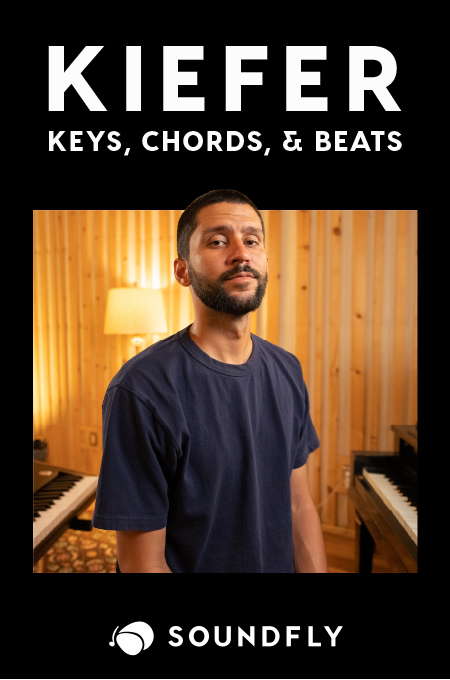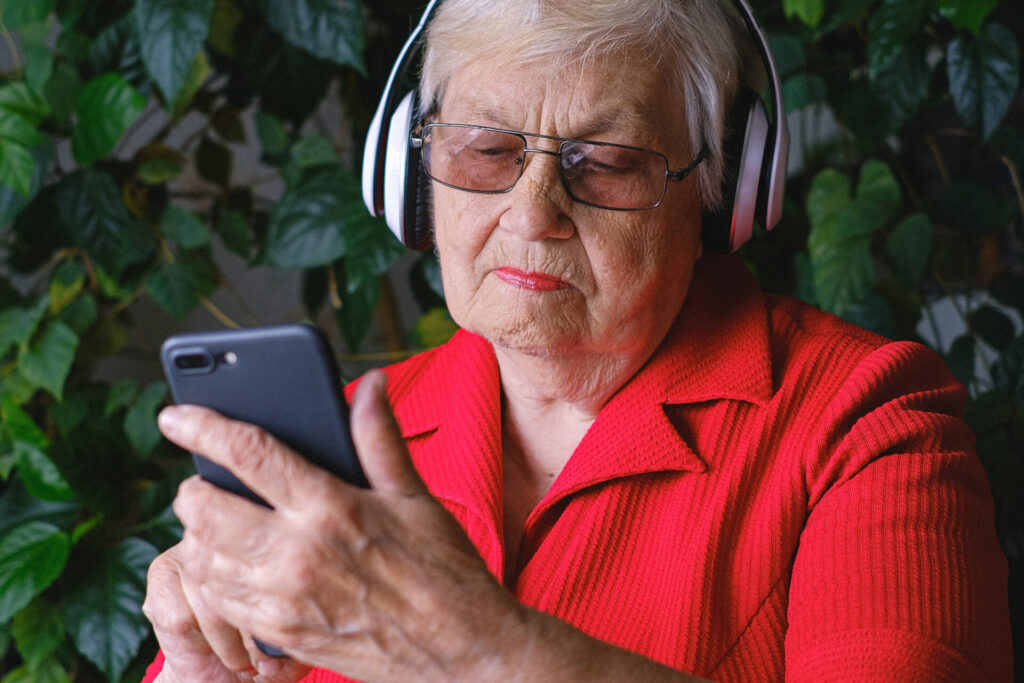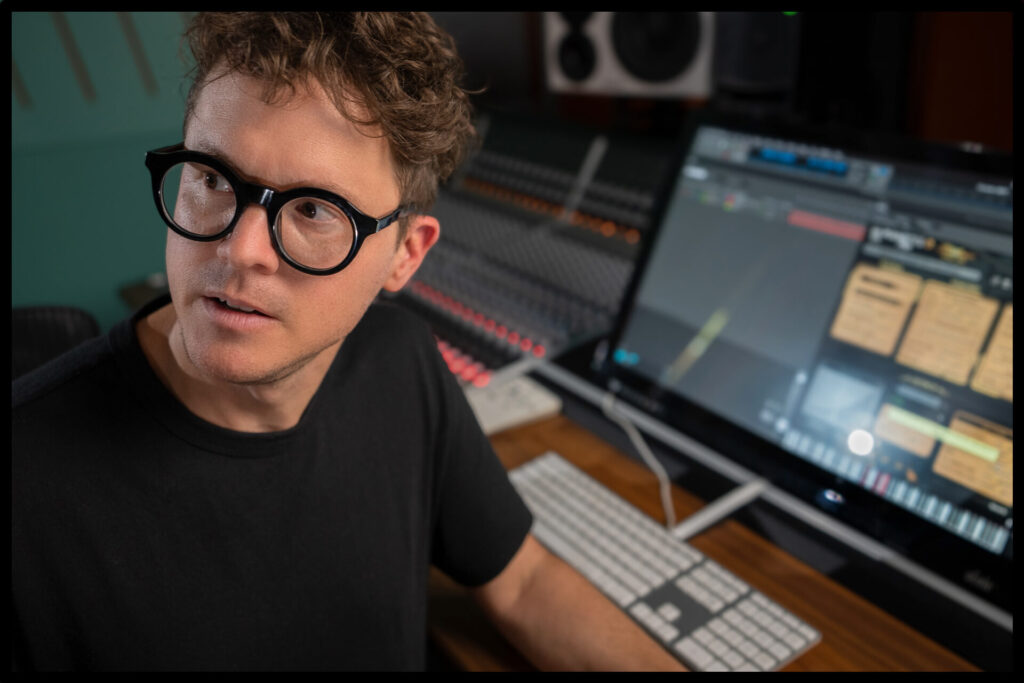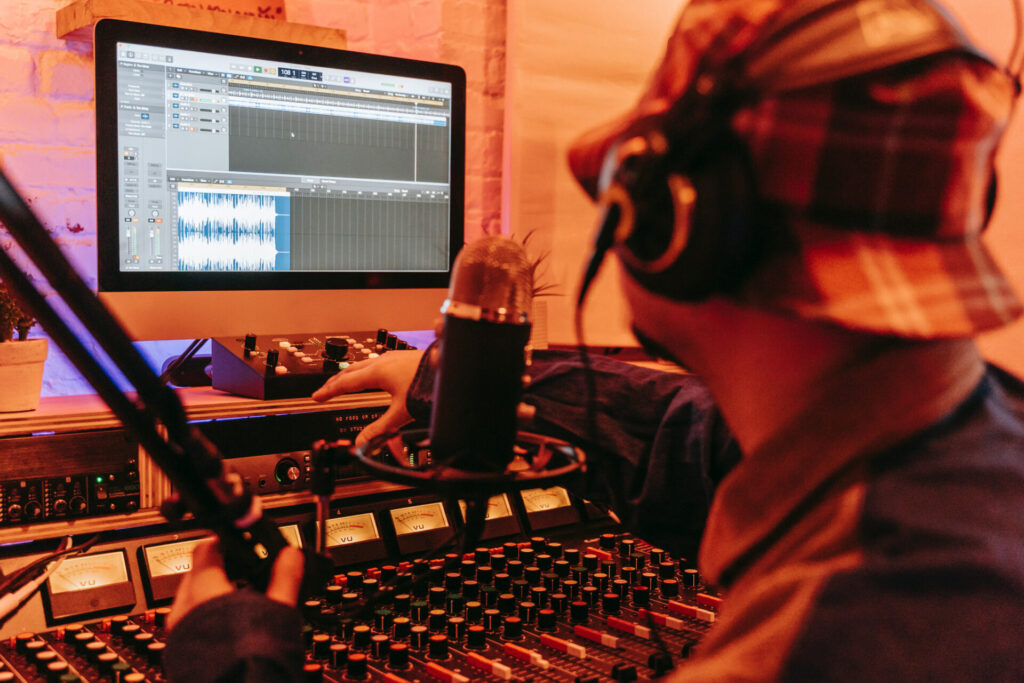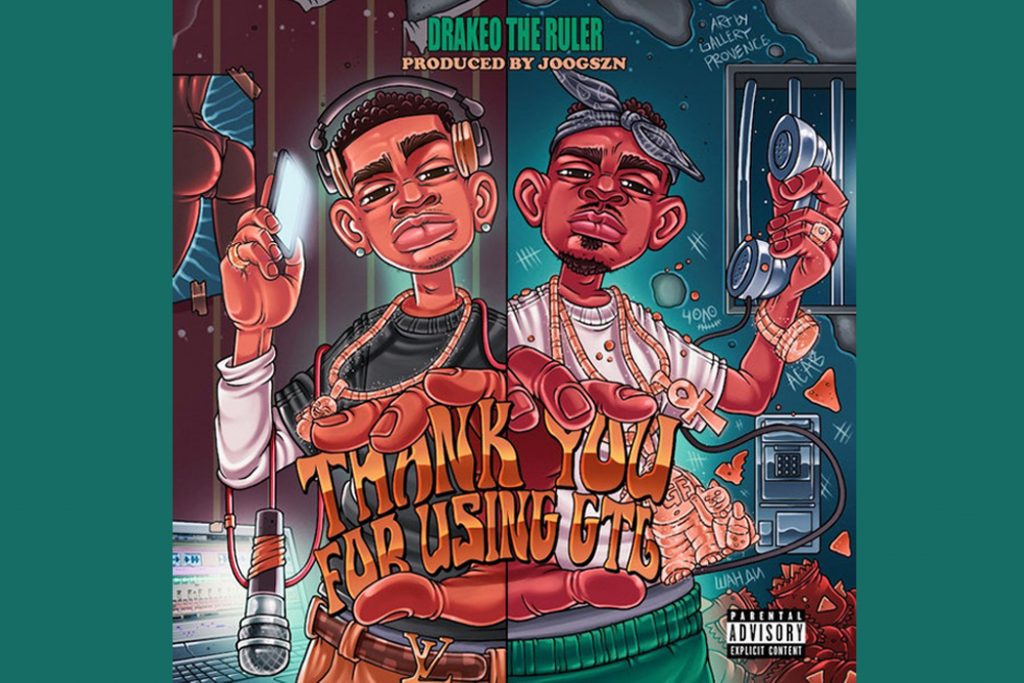
+ This week on Flypaper, we’re exclusively featuring content that covers music initiatives and recordings from prison, in our editorial series, Behind the Bars: A Week Dedicated to Music In, About, and From Prisons. Follow along via this tag or sign up for Soundfly’s mailing list to stay informed about all of our online learning programs.
The United States of America has long been a country divided by its ideologies, and one in which revels in the spoils of irony. As recent events have continued to expose the flawed practices of law enforcement officials who routinely murder unarmed Black people without any fear of consequence, the question in my mind always remains the same: Why can’t America love Black people like they love Black music or Black culture in general?
The irony is like a thick molasses covering so many of the cultural gifts America has given the rest of the world via its Black musical forms. Throughout America’s turbulent history, music has always been a safe haven for Black people. Whether in church services on Sunday morning, in the lone guitar player strumming the blues on a porch somewhere, or the explosive brass bands marching down the street in New Orleans every time someone gets married — music has always provided Black people in America the dual functionality of being a communal foundation of comfort as well as an aspirational route towards accessing individual cultural fame.
And this is important, but that access does not come without a price. Throughout the 20th Century, we’ve seen the sacrifices made by immensely influential Black artists who rose to prominence too assertively, or who took up too much white cultural space; who experienced racism, unwanted negative attention, alienation, appropriation, disastrous trials of manipulation and abuse, etc.
Think of Miles Davis, Nina Simone, Marvin Gaye, Josephine Baker, Dexter Gordon, Whitney Houston, Tupac Shakur, Mahalia Jackson, Charlie Parker, ODB, Robert Johnson, the list goes on.
Despite paying the price of fame with their lives, their sanity, or their welcome in society at large, Black artists have continuously pioneered new forms of musical and creative expression and sonic freedom from which America ultimately benefits. But this transaction turned much darker with the arrival of “Gangsta Rap” in the mid-’80s, when suddenly artists were becoming the targets of federal investigations solely based on their lyrics.
In 1997, a specialized undercover unit of the NYPD known as “the hip-hop police” was created to monitor rappers and their followings. Despite what you’re probably thinking, yes, this unit still exists.
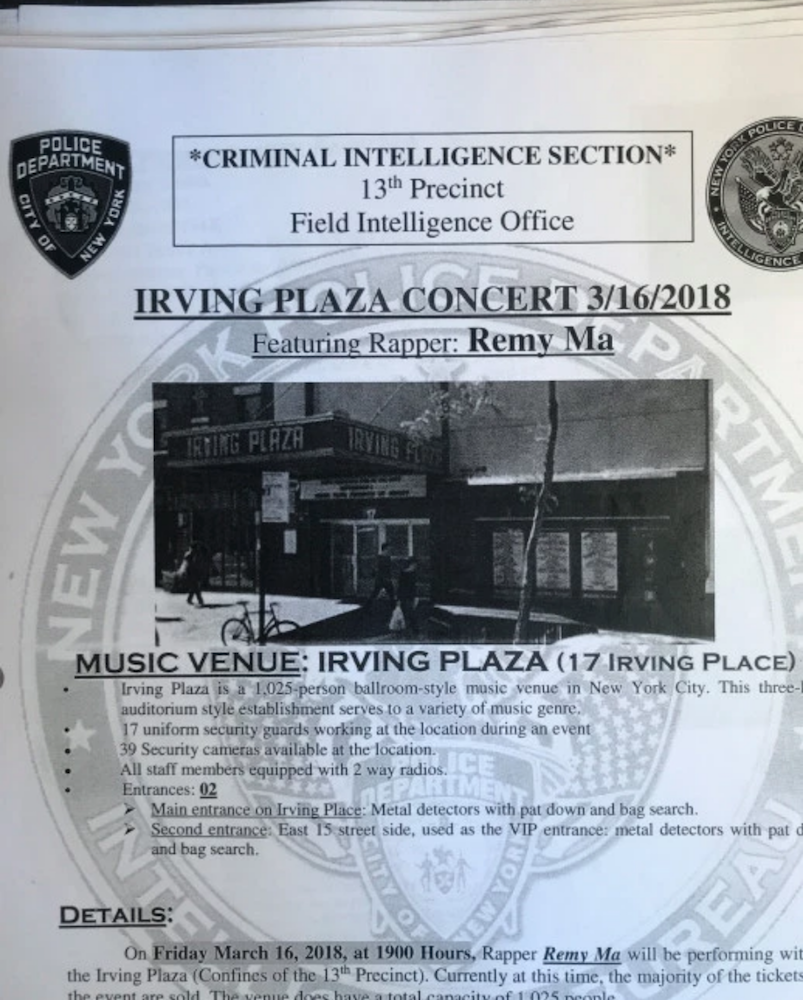
With segregation and Jim Crow made illegal and the “War on Drugs” having been exposed as a scapegoat for controlling Black communities through policy, now the judicial system could use hip-hop music as a means to justifying over-policing neighborhoods and vulnerable communities below the poverty line. More arrests, more opportunities to make examples of gun violence, drugs, and gangs, because artists were already putting those topics into the media themselves.
Ice Cube once referred to the Gangsta Rap of N.W.A. and his own projects as “Reality Rap.” He and other West Coast rappers were just trying to express what they experience on a daily basis, which for anyone living in Black communities in Los Angeles in the ’80s and ’90s meant heavy gang activity. Unfortunately, the assumption of law enforcement and courtrooms is that rappers are guilty of criminal activity if its mentioned in their lyrics — which is a complete denial of one’s right to free speech and encroaches on artistic liberty.
For Los Angeles rapper Drakeo The Ruler, song lyrics can certainly be considered evidence of crimes. Drakeo has been incarcerated off and on for the last three years of his life. Although he was acquitted of all charges filed against him recently, the District Attorney decided to re-file charges of gang conspiracy and keep him locked up without bail until a new trial date was set.
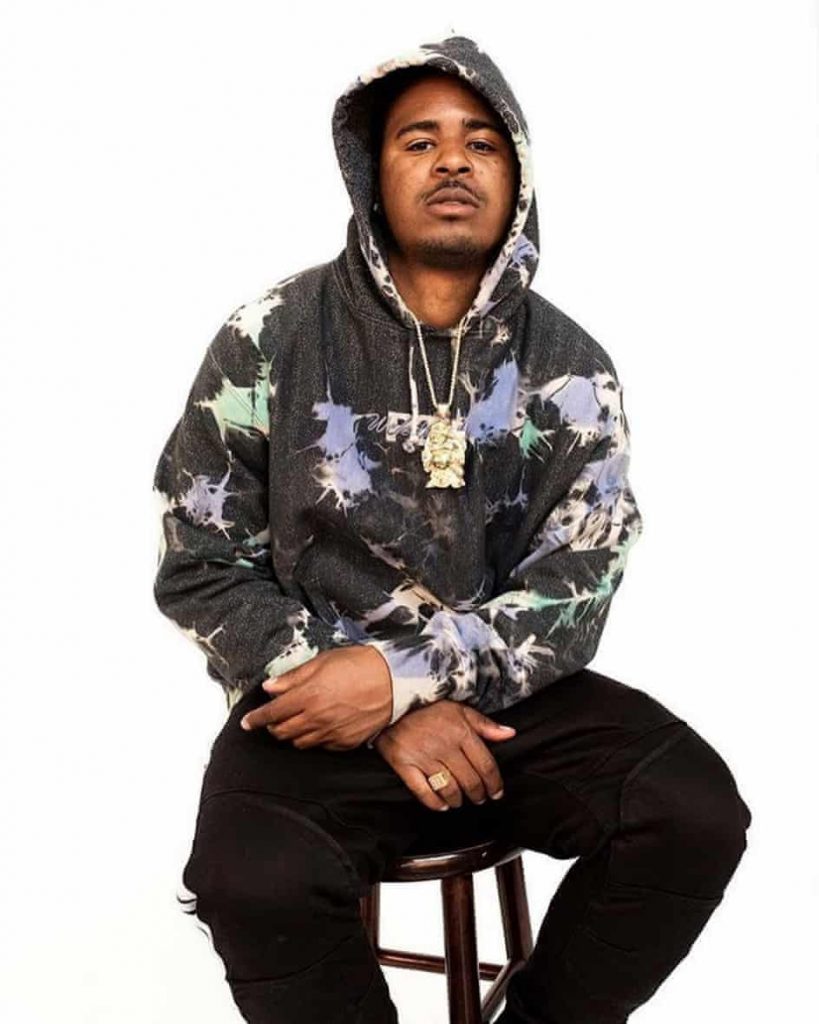
And yet, despite the conditions and limitations of being incarcerated, Drakeo The Ruler and producer JoogSzn decided to make the most out of a complicated, frustrating situation and record an album. Refusing to be denied his creative freedoms, Drakeo’s album, Thank You For Using GTL, makes reference to the telecommunications company (Global Tel Link, or GTL) that provides highly expensive paid phone calls from prisons.
In 2020, Pitchfork called this album “likely the greatest rap album ever recorded from jail.”
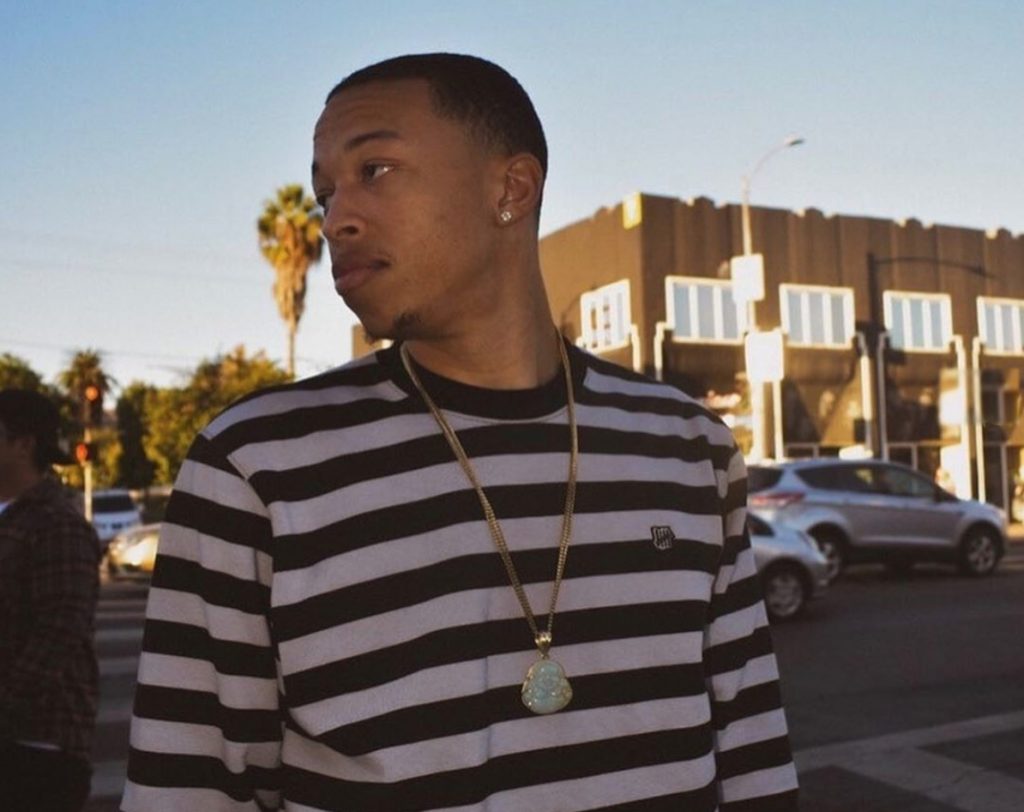
We love this album, too. It’s so much more pivotal and important than that awesome quote says it is. So we reached out to producer JoogSzn to ask him about how this album came to be, and how he hopes this record can impact and influence people to advocate for change — not only for Drakeo’s case, but for the many lives affected by an unfair, unchecked, and racially unbalanced justice system.
Listen to Thank You For Using GTL here:
+ Read more on Flypaper: Check out our full week of content on music in, about, and from prisons here.
Charles: How did you and Drakeo meet?
Joog: Drakeo and I first met at our mutual friend Ron Ron’s studio in Santa Monica. I was initially impressed with his car, a Mercedes GLE, but it wasn’t until much later that we actually connected on music. I knew a few of his friends but we always seem to miss each other for some reason. When we finally connected the first song we made was “Ion Rap Beef” featuring 03 Greedo.
What were the initial conversations that led to this album, and how much planning went into it?
It wasn’t a lot of planning. We already wanted to do tapes when he got out, but they decided to re-file the charges he was acquitted of so that delayed everything. When we were able to talk he would start rapping over the phone like: “aye aye, Joog listen to this this!” Or I would play him my most recent beats. After hearing my beats he always said he had a verse ready. So eventually we just decided we had to work like this.
Besides being recorded in jail, in your opinion what makes this project different from Drakeo’s previous work?
This is Drakeo’s mission statement as an artist. He hears different people running off with the styles he created while he’s being prosecuted for his song lyrics. It’s really unbelievable.
How can you prosecute someone for a piece of art? That’s like putting Anthony Hopkins on trial for being Hannibal Lector or Slayer for Reign in Blood. The other tapes don’t have the same feel or the urgency this one carried. He’s really locked up and trying to tell his story the best way he can.
Can you explain how you actually recorded the phone audio and have Drakeo hear the beat and record at the same time?
I created a loop that allowed Drakeo’s audio to go straight into the computer and that didn’t bleed into the audio he heard through the earpiece. There was a little lag so I had to compensate for the delay and maneuver his vocals to line up to the beat.
I don’t know if it would be possible for a lot of other artists to do this because not only was it a lot of technical work, but Drakeo is a real artist and he has a vision for how he wants the music to sound. His memory and commitment to his artistry are truly amazing.
What were your biggest technical challenges while making this album?
The biggest technical challenge was the phone itself. There’s no consistency in quality from phone to phone in there. Also since me, Navin (engineer) and Drakeo are in totally different places it was a lot of back and forth with sharing files and editing.
+ Read more on Flypaper: “Speech (of the hip-hop group Arrested Development) on His Commitment to Recording Artists Behind Bars”
Did you have an idea for the type of beats you wanted to make for this project before it started, or was everything original?
Most of the beats I set aside for him once I knew we were going to do this project. He had access to a few beats but he likes to create while I create. When we had the ability to work in the studio together he would have full songs done and I would just search through my beats library until I found one that worked for him.
Other times, I would cook up a beat and he’d write a full song on the spot. For this record he had a lot of time to write, so whenever I played him beats he would already have verses or full songs ready to go.
How did you started producing originally, and who would you say your influences are?
I grew up in the Crenshaw district of Los Angeles. I went to a lot of different schools so I had a lot of different influences from all of the people I met and associated with. When I was younger, I studied classical piano.
My parents are very religious so we couldn’t play hip-hop in the house. My sister and I would sneak and listen to different rap tapes. The experience of playing piano, listening to hip-hop, and also growing up in the Black church opened up my ears to different types of music. By the time I got to middle school, I discovered punk rock music and in high school I was into the chopped and screwed music from Houston as well as the hyphy movement.
My main influences as a producer and artist are: Pharrell, Kid Cudi, Travis Scott, Kanye West, DJ Quik, Pimp C, Ron Ron, Acetheface, Mac Dre, and Tyler the Creator.
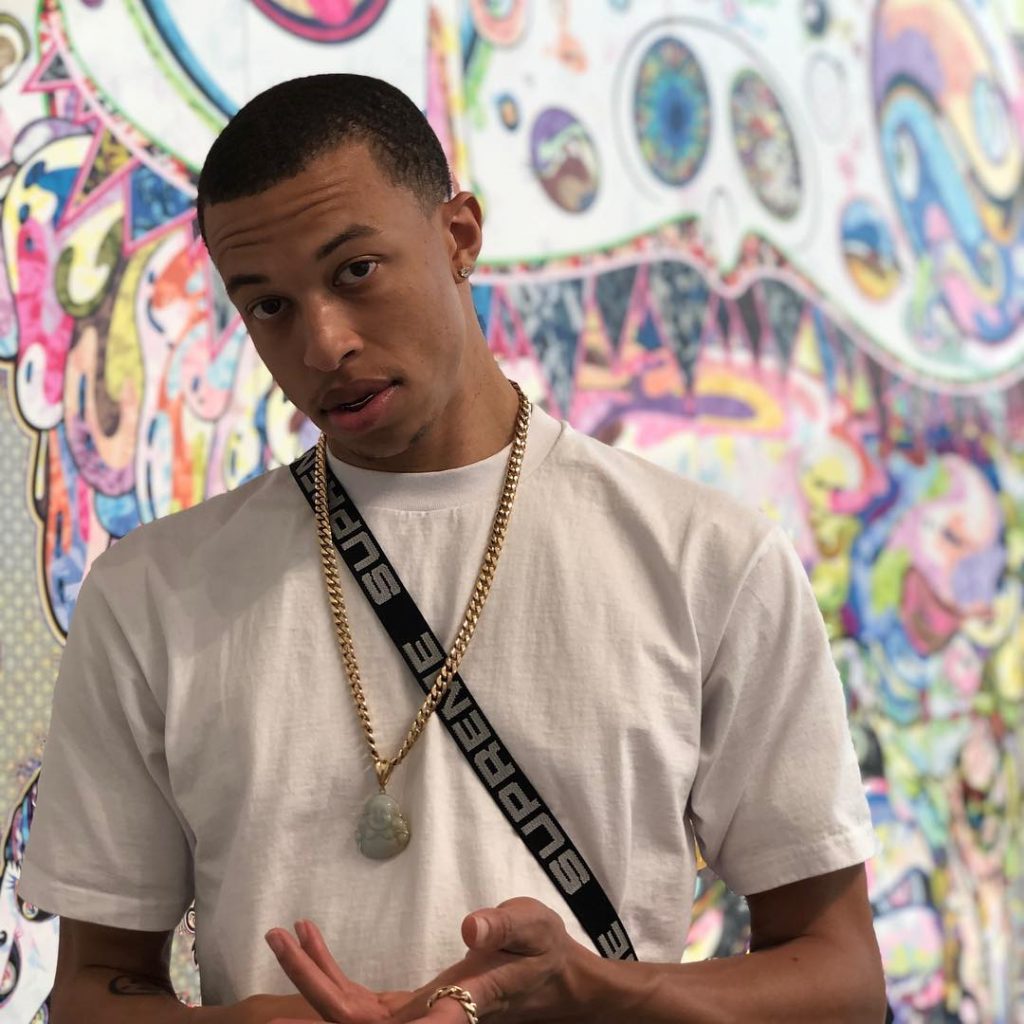
With everything going on right now regarding police brutality and mass incarceration in this country, what do you hope this album’s lasting impact will be?
I hope they defund or abolish the police personally. There are plenty of other areas that could use more funding such as education, healthcare, and unemployment services. I’m glad there’s more awareness around police brutality and unfair sentencing and incarceration.
In my opinion, removing the predatory practices of law enforcement officers and the privatized prison industrial complex is the first step of toppling the racist judicial system. Drakeo is currently experiencing the effects of the corrupt judicial system even with his notoriety and influence. Even though they have been trying to silence him from exposing what’s going on with a gag order we still found a way to bring more light to his case.
I’m going to continue pushing this music, and Drakeo’s case, with the hope that someone that can make real changes to policy gets a hold of his story and sees the truth of what’s going on.
Improve all aspects of your music with Soundfly!
Subscribe to get unlimited access to our premium online courses, an invitation to join our members-only Slack community forum, exclusive perks from partner brands, and massive discounts on personalized mentor sessions for guided learning. Learn what you want, whenever you want, with total freedom.
